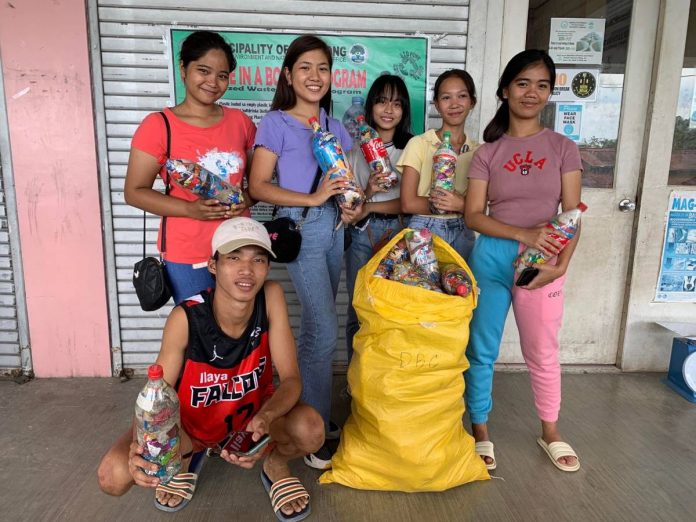
ANTIQUE – The municipality of Bugasong has reduced its daily generated waste by 50 percent through its “Garbage in a Bottle” initiative.
“Before, our daily garbage collection was about one ton, but with the implementation of ‘Garbage in a Bottle’, we reduced the collected waste to half,” said Domingo Lavega, farm foreman of Bugasong and in charge of the solid waste management program under the Municipal Environment and Natural Resources Office.
Lavega said they thought of “Garbage in a Bottle” after the Department of Environment and Natural Resources ordered the closure of open dumpsites nationwide in compliance with Republic Act 9003, or the Ecological Solid Waste Management Act, in 2021.
The initiative made Lavega a national semi-finalists for the 2023 Civil Service Commission Pagasa Award, conferred to groups or individuals for their contributions benefiting their office, agency community, or region.
The “Garbage in a Bottle” is a barter scheme. For every kilo of collected waste placed in a polyethylene terephthalate (PET) bottle, a person gets a kilo of rice.
“The Bugasong local government unit (LGU) allocates a budget of more than P80,000 annually for this,” Lavega said.
He said not only does Bugasong, a third-class municipality, manage its solid waste; it also saves fuel for its garbage collection truck.
They only have one trip from Monday to Wednesday to collect residual waste from the previous two.
The collected residual wastes are melted and made into monoblock chairs and tables or eco-brick and eco-path at their residual containment area in the town’s Barangay Tagudtud South with the help of “Green Boys” who are LGU employees tasked with doing the waste processing.
“We have plastic factory machinery from the Antique provincial government that melts the plastic,” he added.
Their biodegradable wastes collected Wednesday to Friday are processed into organic liquid foliar fertilizer or vermicast and sold to interested residents, thus generating income for the LGU.
“We have to do waste diversion. Establishing a sanitary landfill is expensive,” Lavega said. (PNA)/PN



